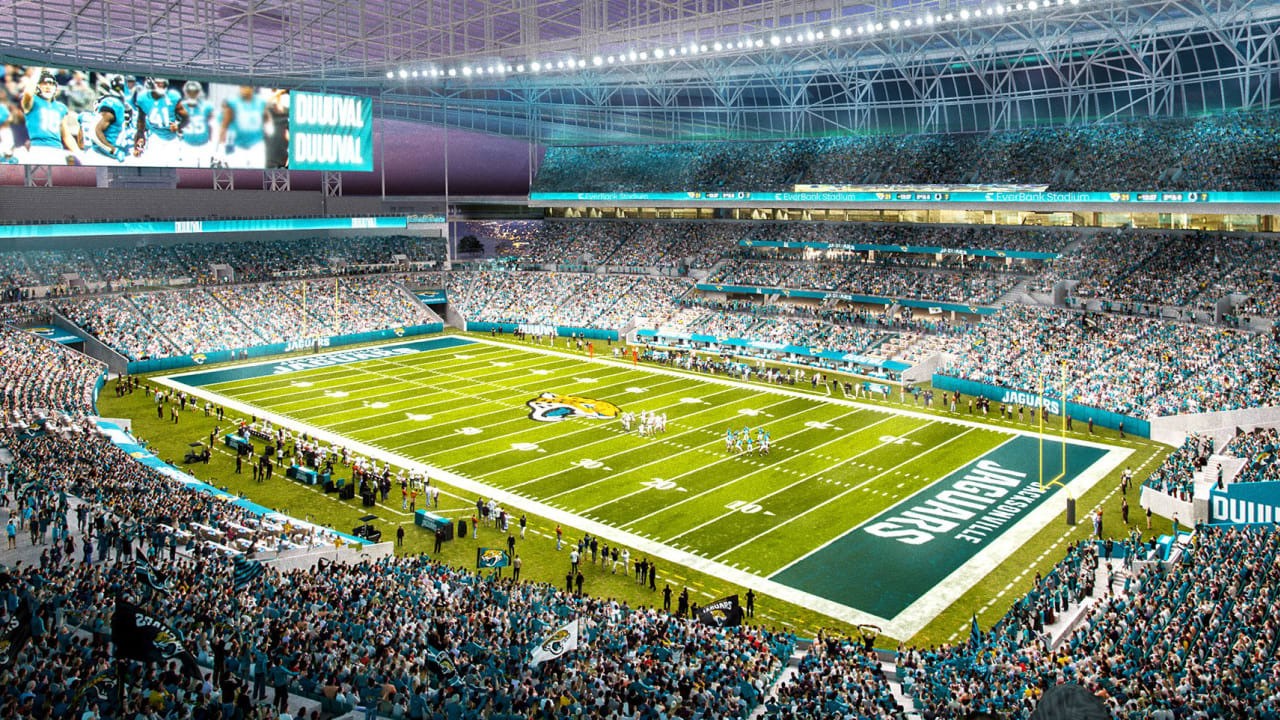Jacksonville approves $1.4 billion ‘stadium of the future’ that should keep Jaguars in town for decades

JACKSONVILLE, Fla. — The city of Jacksonville approved a $1.4 billion “stadium of the future” Tuesday that should keep the Jaguars in one of the NFL’s smallest markets for at least another 30 years and end decades of speculation about the franchise being a potential relocation candidate.
City councilmembers voted 14-1 (two abstained) in favor of the proposal, which now advances to NFL owners for final approval. Owners are scheduled to meet in Atlanta in October, with 24 of 32 votes needed to seal the deal.
The Jaguars don’t anticipate much pushback from the league even though the 50-50 financial split is higher than most NFL owners contribute toward new or renovated stadiums.
The stadium proposal calls for each side to contribute $625 million to the $1.25 billion project. Jacksonville, which won’t levy any new taxes to fund the rebuild, would chip in another $150 million in deferred maintenance to get EverBank Stadium ready for construction in 2026. That essentially pushes the city’s contribution to 55% of the total bill.
Construction would begin following the 2025 season. The Jaguars would play in front of a reduced capacity (no upper deck) in 2026 and then host home games in Gainesville or Orlando the following year.
The proposal includes a 30-year lease, a non-relocation agreement and a provision that limits the number of games the Jaguars can play outside Jacksonville. Under the new lease, the Jaguars would play all preseason and postseason home games in Jacksonville and would continue to play one home game a year in London, likely at Wembley Stadium.
Both sides expect the revamped stadium to lead to more high-profile events.
The Jaguars agreed to take on all construction cost overruns, assume day-to-day operations of the stadium and bear 80.4% of game day expenses moving forward.
The proposed 63,000-seat, open-air stadium includes a translucent covering that’s the equivalent of “wearing shades in the sun,” team president Mark Lamping has said. It’s expected to lower outside temperatures by 15 degrees.
Capacity could be expanded to 71,500 to accommodate the annual Florida-Georgia rivalry, the Gator Bowl, a College Football Playoff game or the Final Four. Pools and a party deck would remain in the north end zone.
The city and the Jaguars still hope to add substantial development to the surrounding area, which is expected to include a University of Florida satellite campus that would bring in 10,000 graduate students. The city and the team consider the areas surrounding the stadium critical to the long-term success of Jacksonville’s downtown.
The city plans to finance its portion of the deal by moving $600 million from a capital improvement plan and using revenue from an existing, half-penny sales tax to fund the build in a pay-as-you-go campaign. The city says it would save $1.5 billion in debt-services fees over the life of the lease.
The Jaguars plan to fund part of its portion through the NFL’s G-4 program, which provides financial assistance for stadium projects. Funding through the program is considered a loan and is repaid from the visiting team’s share of certain seating. A team applying for the loan is required to put up matching dollars.
Related
NFL star intends to make shock return to football after…
By JAKE FENNER Published: 14:06 GMT, 8 March 2025 | Updated: 14:06 GMT, 8 March 2025 After
New York Jets Launch Year Three of NFL Girls Flag…
The New York Jets are delighted to announce the return of its highly successful Jets NFL Girls Flag league in London ahead of International Women's Day.
MOCK DRAFT WATCH: Interior OL emerges as top pick for…
Trevor Sikkema, Pro Football Focus: James Pearce Jr., Edge, Tennessee Why: Pearce had an incredibly impressive combine showing in the speed drills,
Shedeur Sanders places blame on media, says perceived drop in…
Former Colorado quarterback Shedeur Sanders opted out of throwing passes at last week's NFL Scouting Combine. He did, however, travel to Indianapolis and condu










